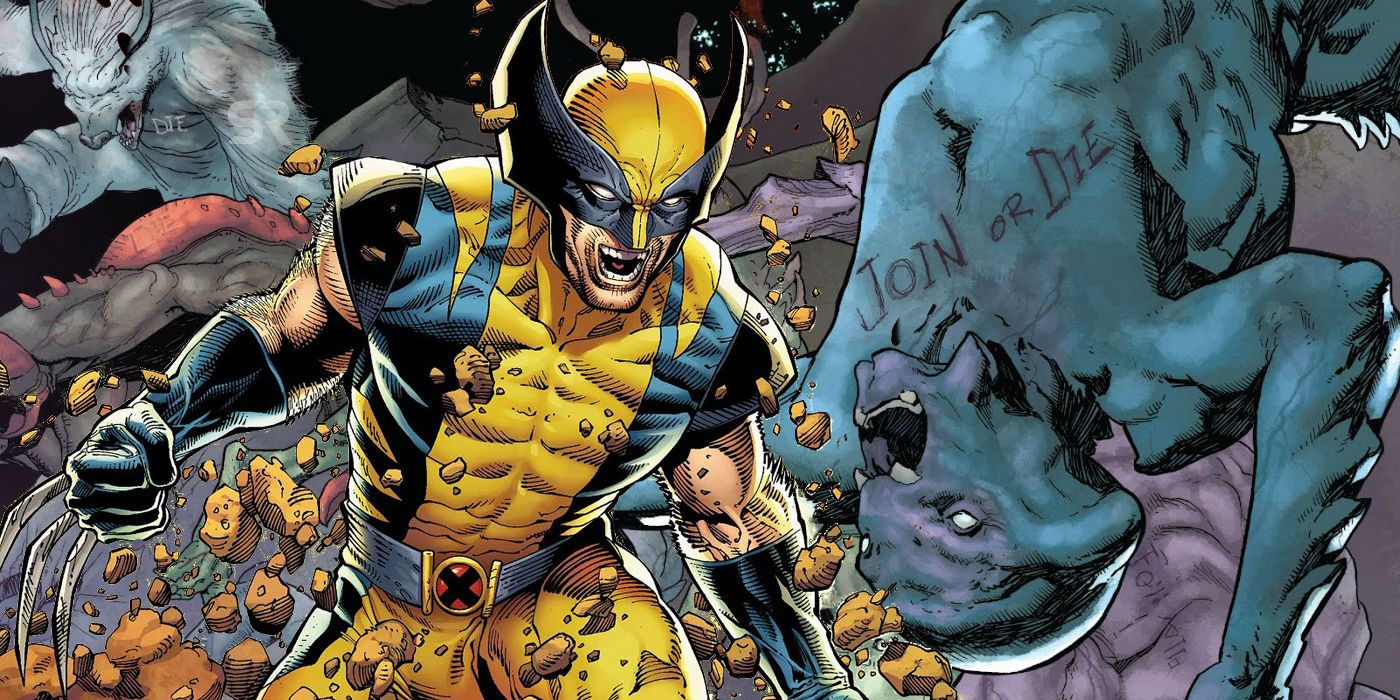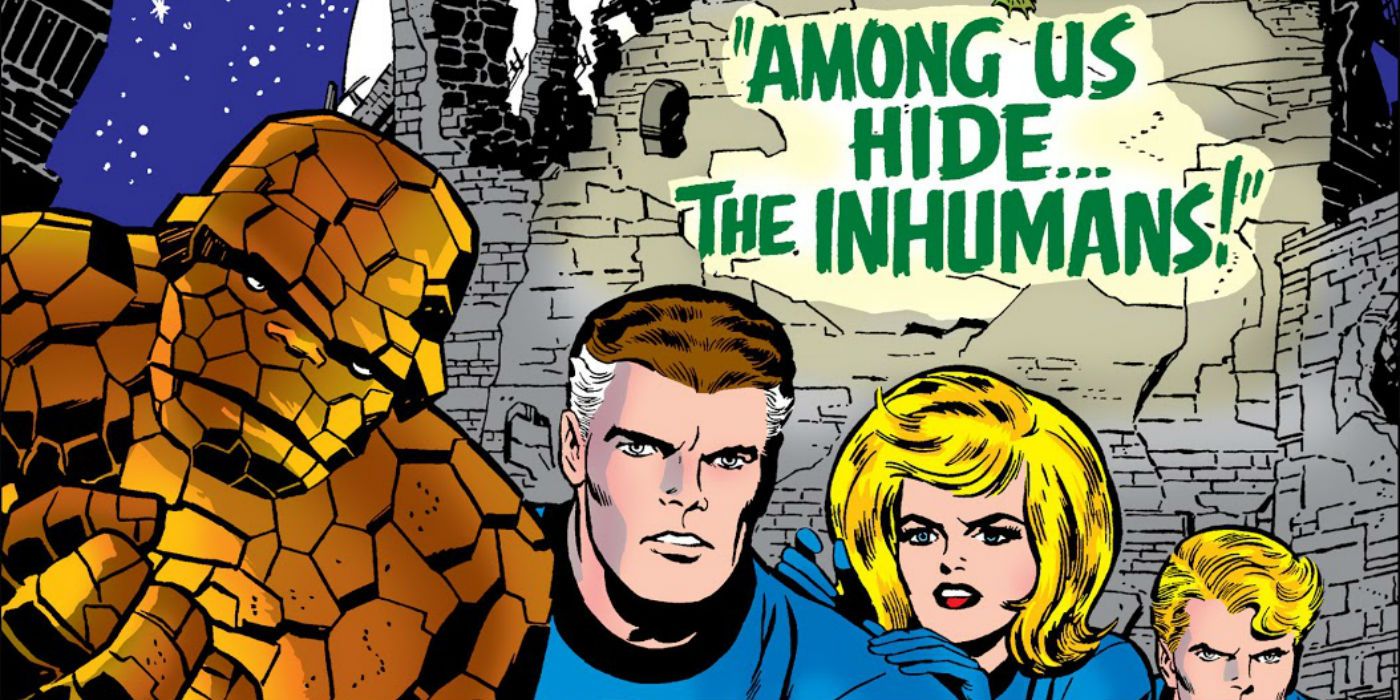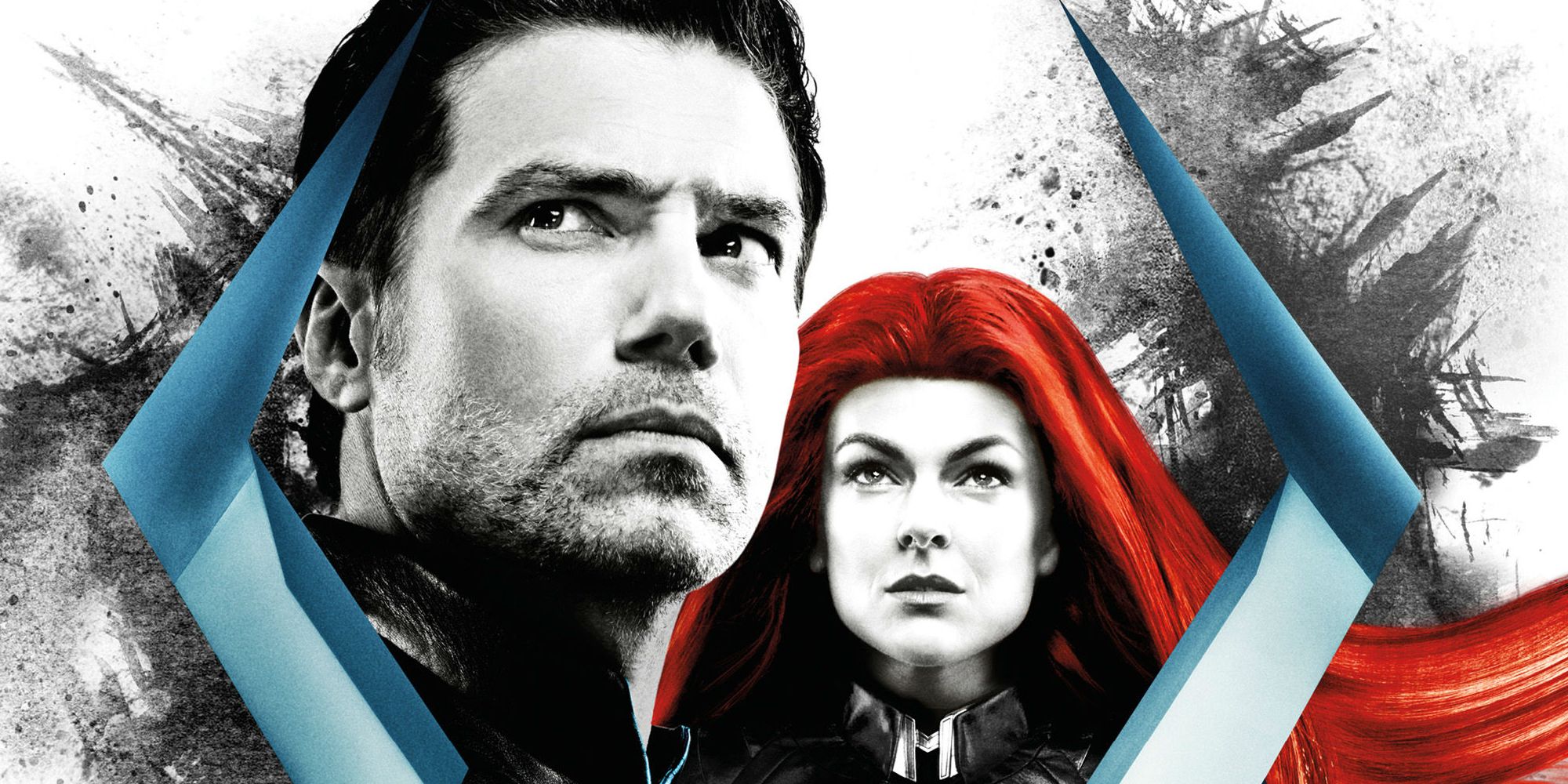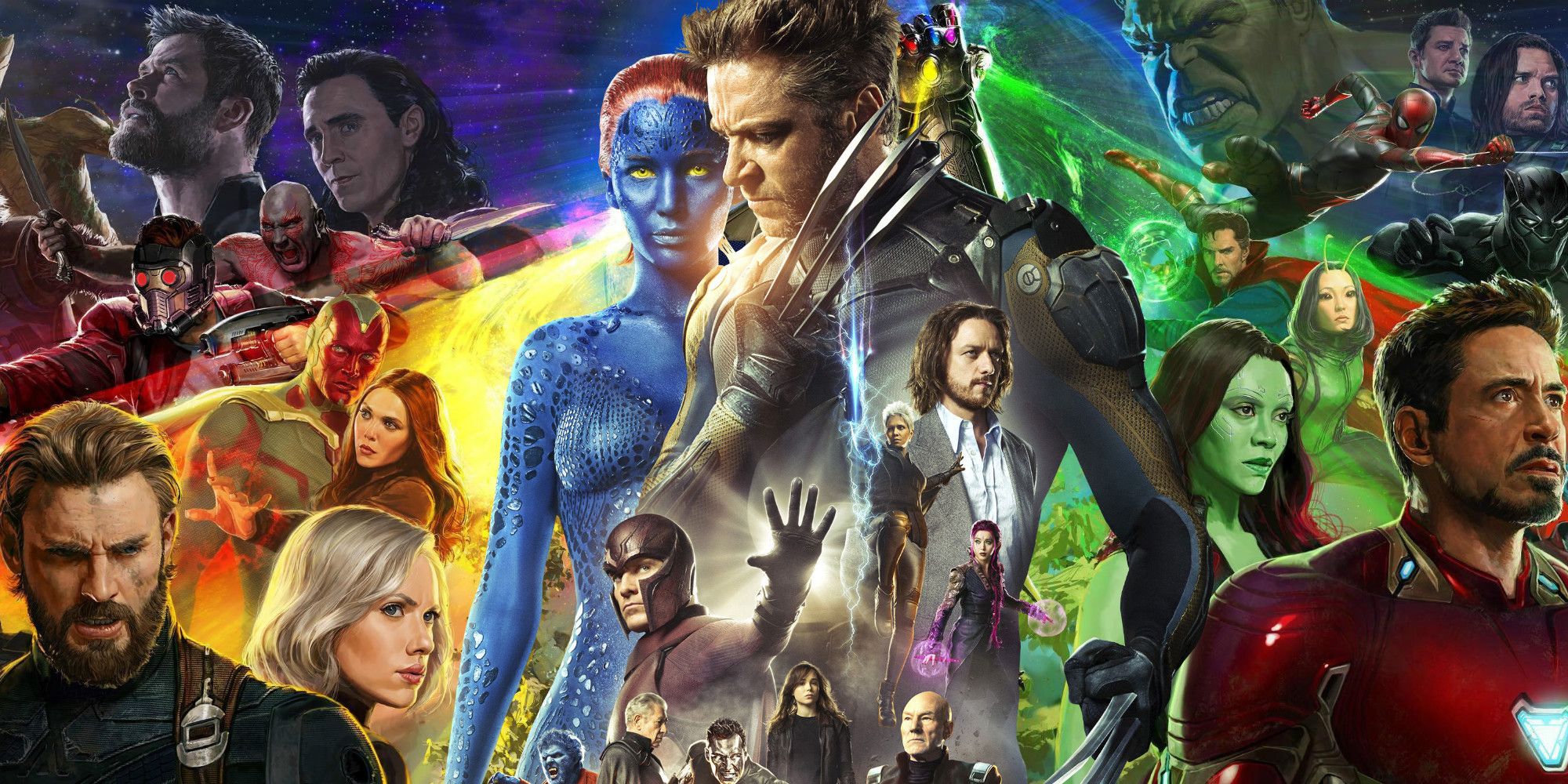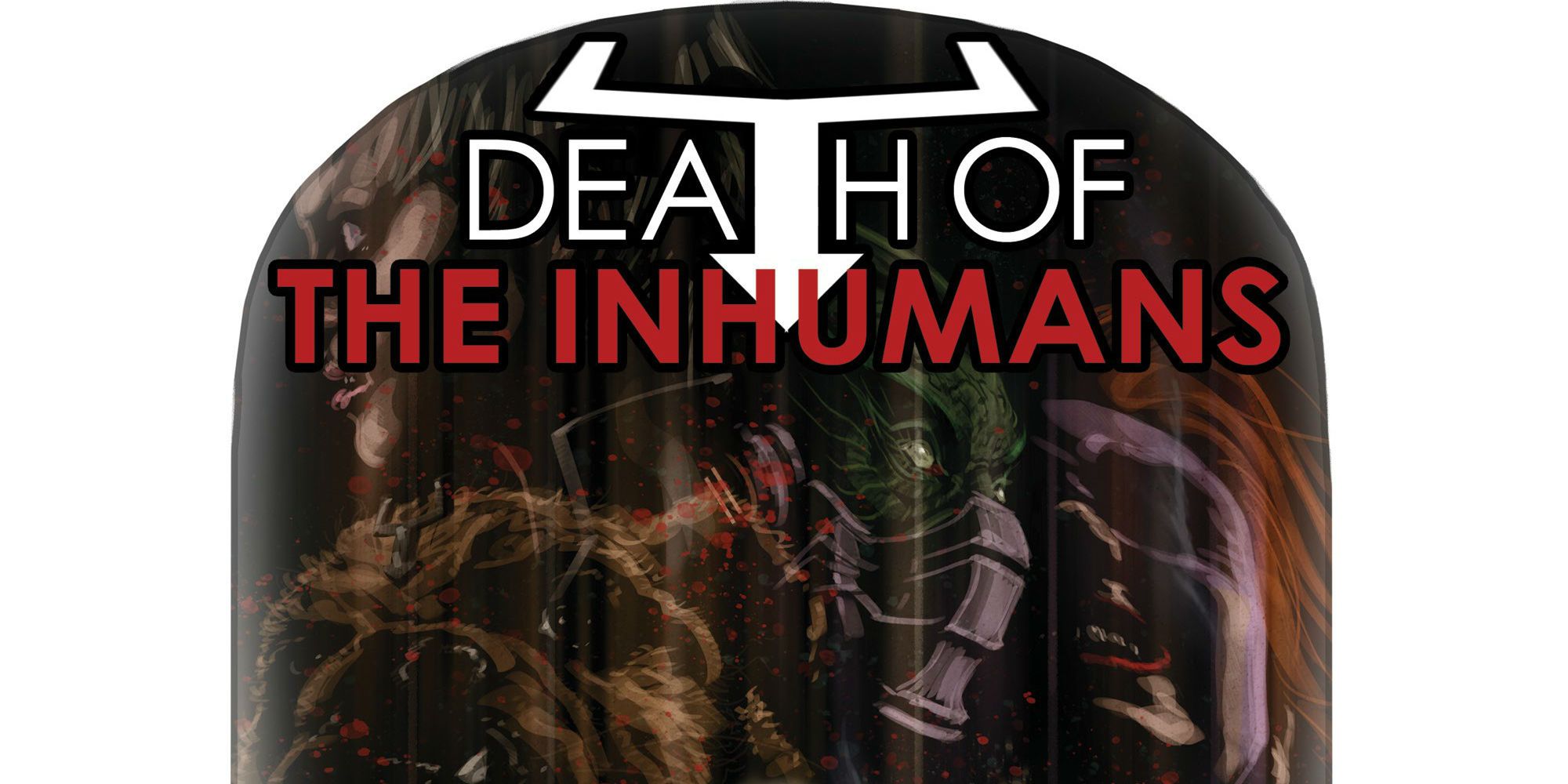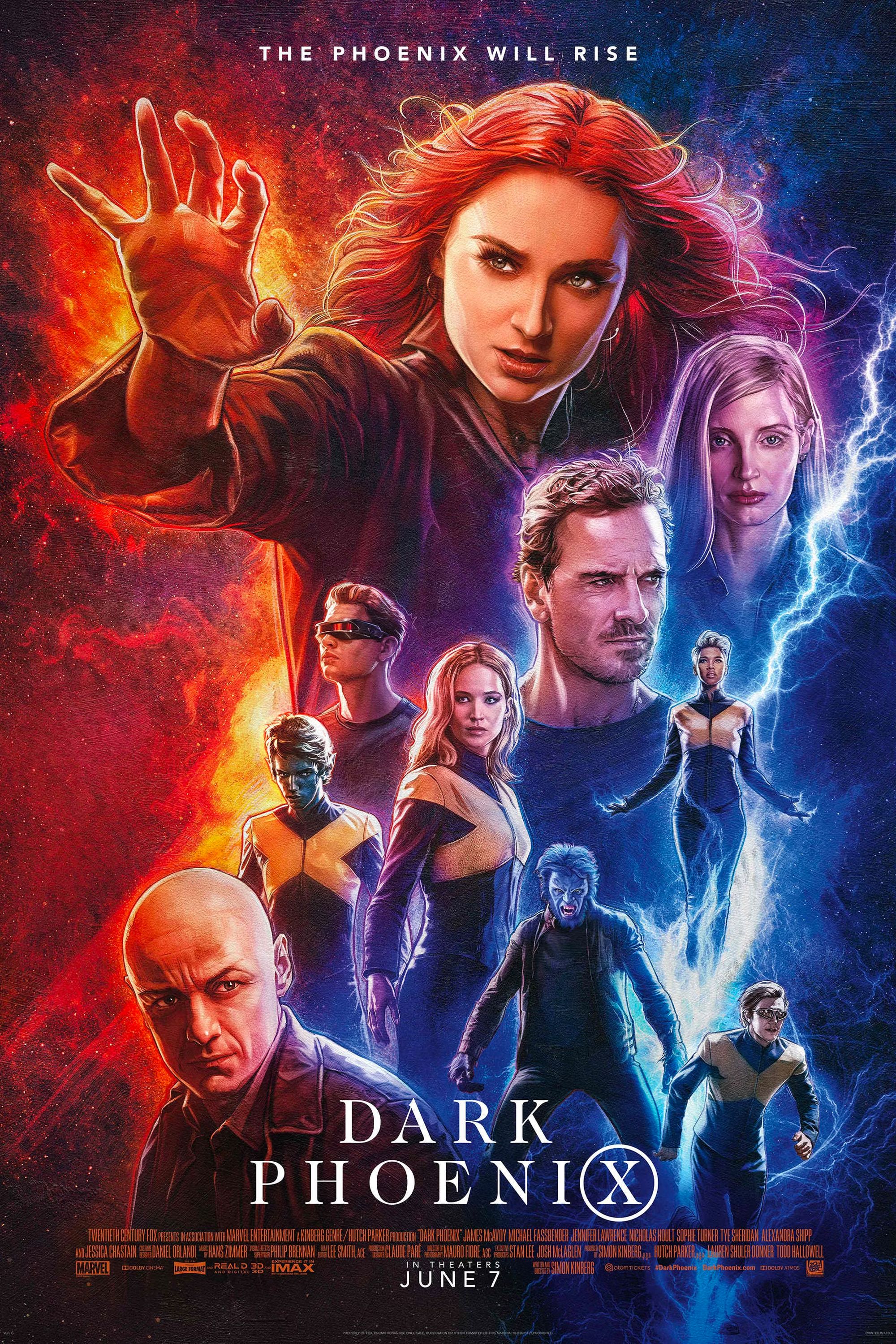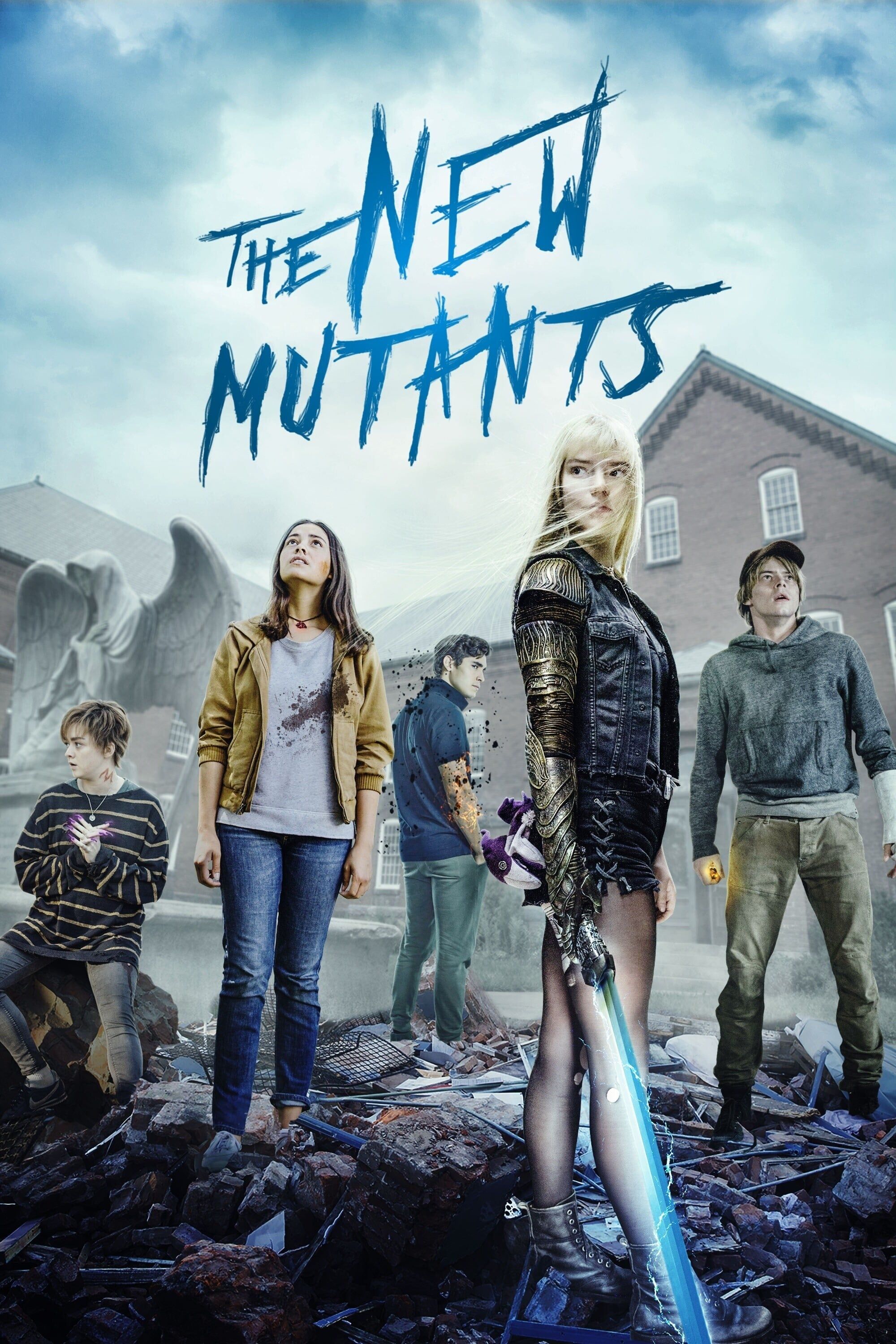If you missed Marvel's Inhumans TV series, it may not matter much. Disney's acquisition of Fox brings the X-Men movie rights under the same umbrella as the Marvel Cinematic Universe, and Marvel Comics is already making moves to switch focus from Inhumans titles to X-Men titles. After spending decades as D-list superheroes in Marvel Comics - barely featured at all in the 1980s and 1990s - the Inhumans enjoyed a resurgence in recent years as Marvel attempted to install them as replacements for the X-Men. In addition to a planned movie (which later became the TV series), the Inhumans were a key feature of Marvel's Agents of SHIELD, and proliferated across the comics in both their own titles and crossover events, including Infinity, Inhumanity, Civil War II, All-New Inhumans, Uncanny Inhumans, and Inhumans vs. X-Men.
Despite Marvel's concentrated efforts to push the Inhumans as the race of superpowered beings (in the Inhumans' case, via a Terrigenesis Bomb rather than genetic mutation), the fandom has never really gotten fully onboard with them. While sales of Ms. Marvel (whose status as an Inhuman is somewhat secondary to her story) have been strong, other ongoing Inhumans series have struggled to find a solid readership. And now that the X-Men returning to the fold on the big screen, with the Disney-Fox deal expected to be finalized by summer 2019, Marvel no longer has a clear motive to continue trying to make the Inhumans work.
- This Page: Marvel's Attempt to Replace X-Men With Inhumans
- Page 2: Disney's Fox Buyout and the Death of the Inhumans
Who Are The Inhumans?
If you don't read the comics, skipped over the Inhumans TV series, and stopped watching Agents of SHIELD after season 1, you may not even know who the Inhumans are. They began life as early versions of humans, who were experimented upon by the alien race called the Kree (Guardians of the Galaxy's villain, Ronan the Accuser, was one of the Kree and pretty representative of his species). The Kree eventually abandoned their creations, and the Inhumans formed their own society, separate from regular humans and led by a royal family.
The Inhumans discovered that they could use rare crystals, called Terrigen Crystals, to trigger a process called Terrigenesis that awakens their unique powers and mutations, with no two Inhumans having the exact same abilities. Medusa, a member of the royal family, was the first Inhuman to make an appearance in Marvel Comics (in Fantastic Four #36), debuting as a member of villain team the Frightful Four. Then in Fantastic Four #45 the Inhumans were named for the first time and key members like Crystal and Lockjaw were introduced.
Related: Inhumans COULD Have Brought a Major MCU Twist
Marvel's Attempt to Replace X-Men With Inhumans
Fox's ownership of the X-Men movie rights didn't really start to cause problems until Marvel Studios began producing their own superhero movies, starting with Iron Man and The Incredible Hulk in 2008. Marvel Entertainment began the process of phasing out the X-Men and attempting to replace them with the Inhumans. For example, Marvel put a hold on creating any new X-Men characters (since their movie rights would automatically go Fox), and made efforts to eliminate new merchandising featuring the Fantastic Four or the X-Men. In perhaps the most on-the-nose example, the same Terrigen Bomb that granted powers to a new generation of Inhumans in the comics also rendered Mutants sterile. In 2016, acclaimed X-Men writer Chris Claremont explained (via Bleeding Cool) why the X-Men were being slowly suffocated:
That has everything to do with the fact that the film rights are controlled by a rival corporation. I guarantee you that if 10 years ago, when Marvel was approached by Disney, if the X-Men film rights were owned by Marvel Studios and not Fox, the X-Men would probably still be the paramount book in the canon... I think the corporate publishing attitude is: “why would we go out of our way to promote a title that will benefit a rival corporation’s films when we could take that same energy and enthusiasm and focus and do it for our own properties?”
Because the original Inhumans origin story was based around this particular species of superhumans choosing to undergo the Terrigenesis ritual and transform themselves, they were an imperfect replacement for Mutants - a group who were born with genetic mutations, developed their powers organically, and were persecuted for something that they couldn't control (thereby making them an analog for oppressed groups in society). The Terrigenesis Bomb that was detonated during the Infinity storyline in the comics (and replicated in Agents of SHIELD via Terrigen-contaminated fish oil supplements that were distributed around the world) was a means of taking away that element of choice and forcing superpowers on the Inhumans.
This effort to suppress the X-Men is generally attributed to Marvel Entertainment CEO Ike Perlmutter, who was also responsible for decisions like vetoing a female villain in Iron Man 3 on the basis that a female character wouldn't sell as many toys. In September 2015 Disney changed the structure of Marvel Entertainment so that Marvel Studios boss Kevin Feige would no longer be subject to Perlmutter's whims, and would instead answer directly to Disney. Not long afterwards, Marvel Studios cancelled the planned Inhumans movie - seemingly no longer interested in taking part in the campaign to undermine the X-Men by pushing the Inhumans. Marvel TV (which was still under Perlmutter's control) launched an Inhumans TV show instead, but it was critically-maligned, had poor ratings, and was cancelled after one season.
Page 2: Disney's Fox Buyout and the Death of the Inhumans
Disney's Fox Buyout Will Effectively Kill the Inhumans
One of the reasons why Marvel's efforts to push the Inhumans as an X-Men substitute failed was that Fox hasn't let the X-Men movie rights go to waste. Bryan Singer's X-Men, along with Sam Raimi's Spider-Man, marked the beginning of what would eventually become the comic book movie renaissance that today has come to completely dominate Hollywood. It was a bold, memorable, and effective introduction of the superhero team for mainstream audiences, many of whom hadn't before encountered the idea of superheroes as a persecuted group. It may be almost two decades old, but X-Men still holds up as a cornerstone of modern superhero cinema - not to mention simply being a great movie.
Comic book fans actually make up a relatively tiny segment of the audience for comic book movies. Because of this, Marvel tinkering with the Inhumans and trying to phase out the X-Men within the comics had virtually no impact on the popularity of the X-Men within mainstream audiences. X-Men: Days of Future Past, which was released amid Marvel's most concentrated efforts to downplay the X-Men in comics, became the series' highest-grossing movie worldwide.
Related: Marvel Comics Show How To Explain Mutants In The MCU
With the Disney-Fox deal only recently approved, it's currently unclear how the X-Men will be folded into Marvel Studios' existing mega-franchise. It's possible (though unlikely) that Marvel may even decide to keep the X-Men separate and continue with the established universe. One thing is certain: Disney won't wait long to cash in on such a successful and well-known franchise that already has a lot of momentum, with X-Men: Dark Phoenix, New Mutants and (supposedly) Gambit all coming out next year. Moreover, Marvel Comics no longer needs to keep the X-Men suppressed in order to avoid promoting a rival studio's franchise, which means we'll see a resurgence of X-Men in the comics and, concurrently, the Inhumans will be phased out. In fact, that process has already begun.
Death of the Inhumans & Return of Wolverine
The recently-launched Death of the Inhumans comic event has already started to shake things up, killing off eleven thousand and thirty-eight (and counting) members of the Inhuman race, and introducing a new race of "Super-Inhumans" (genetically engineered by the Kree to have superpowers, but no "problematic humanity") led by the villainous Vox. In the first issue alone, Vox, who has the power to project devastating blasts of energy with pinpoint precision when he speaks, appeared to kill off both Black Bolt's faithful companion Lockjaw, and his not-so-faithful brother, Maximus. Triton, another of the original Inhumans, was also killed off.
Although one of the golden rules of comic books is that no one is ever really dead, it does seem clear that Marvel Comics has switched focus from pushing the Inhumans into the spotlight to quite literally burying them. In 2014, when Marvel's efforts to smother the X-Men were at their peak, the publisher released a miniseries called Death of Wolverine, which killed off the X-Men movies' star player. Surprising no one, Wolverine will now be making a comeback in a new miniseries titled Return of Wolverine, which debuts in September, and the rest of the X-Men were recently put back on the front-burner via the somewhat clunkily-titled ResurrXion event. Meanwhile, the Fantastic Four are also returning in a new series, which launches in August.
Though they never quite achieved the same height of success as the X-Men, the Inhumans do have fans and there are many who will be sad to see their turn as Marvel's pet project come to an end. But with Death of the Inhumans already off the a strong start, hopefully we can trust that Marvel will at least give them an epic send-off.

